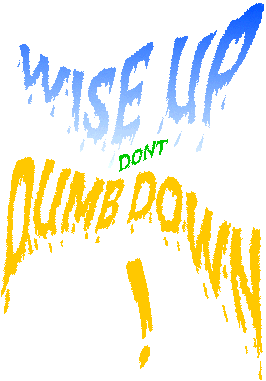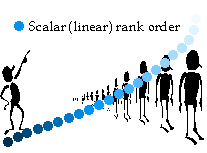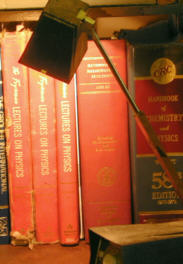| Anti-intellectualism.
What's troubling about it? It pressures people to oversimplify, that's bound to be harmful to society; it erodes away possibilities for adequately confronting complex problems. It especially erodes scientific literacy. Of course it helps the spin-doctors of advertising and propaganda. What's more, the modern spin doctor's scalpel is unreasonably effective in paring away our cortical functions – critical thinking, abstraction, mathematical insight, absurdity dodging... working toward leaving some minimal, uncritical, primitive-animal brain. This lets them sell cigarettes with sex, Cokes with International Harmony, and elected leaders with...well, just how do they do that?. |

|
Anti-intellectualism.
What to do about it? In the 1940's and 50's critical thinking about propaganda was taught in elementary schools, and pupils laughed in ridicule at the on-the-hour ads when important programs, like the World Series and speeches by the President, were piped into the classrooms. The encyclopedias published then assumed that readers would understand substantive topics, such as elementary calculus, physics, chemistry and biology--stuff at least a century or two old!--and the writings of such as Shakespeare, Shaw, Cervantes and Bertrand Russell. In the last third of the 20th century, science teachers realized that rote-and-regurgitate education had to be replaced by vigorous, puzzle-solving: it can lead to useful understanding. The science is simple, but it's subtle. The insights are a little hard to see, but they can be exhilarating, and the understanding generated by the hard work is empowering. This is real education. |
||
|
Garrison
Keilor

No! Some people are brighter than others. |
"Brighter"?
Meaning...?.
The drawing with
the blue dots was made to illuminate a profound misunderstanding seen on
TV:
Consider this profound concept that led Feynman to say "...sooner or later you will need to use tensors." |
J.
P. Guilford's observed that human intelligence requires at least 17 dimensions
to graph.
Guilford's observation is death to the put-down. What can we devise to make this clear? All the children are above average! |
||
| The
error of the put-down
The reality of dimensions The many colors of our auras |
